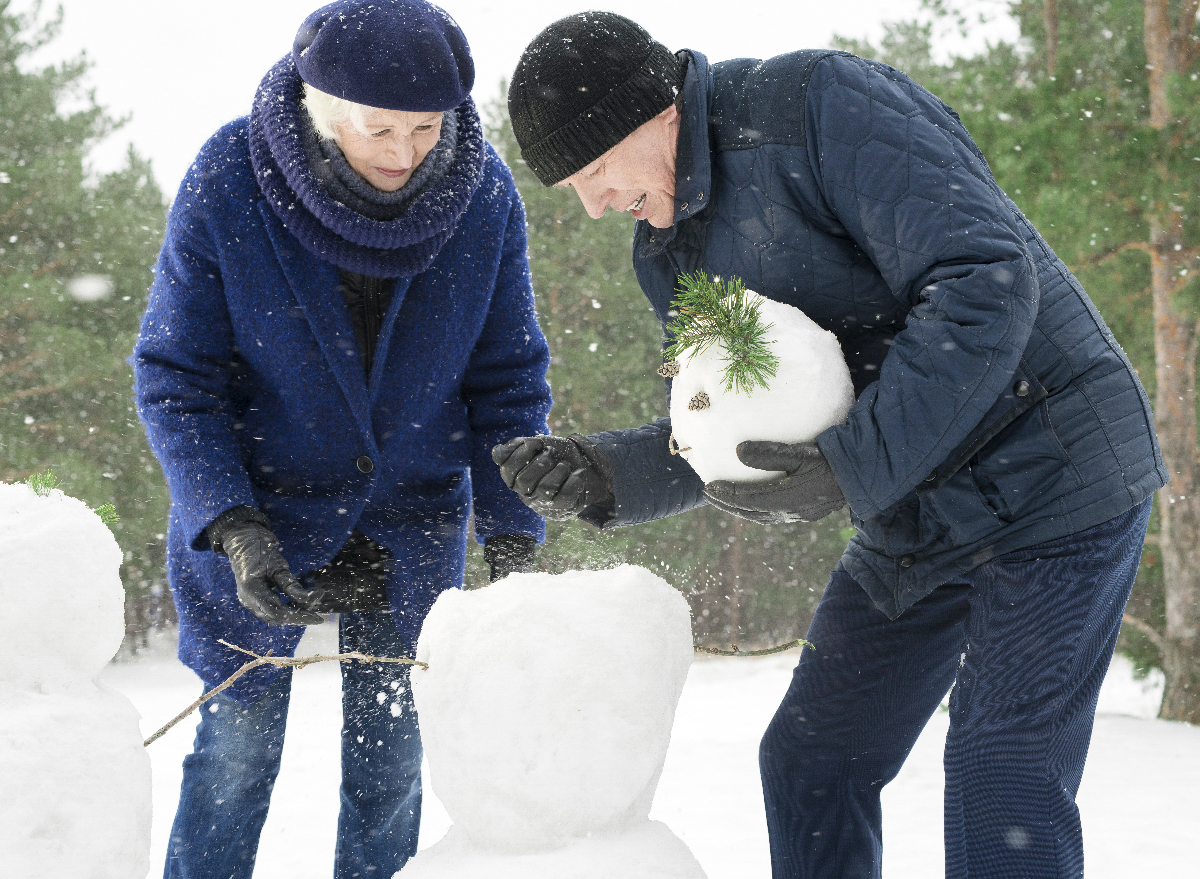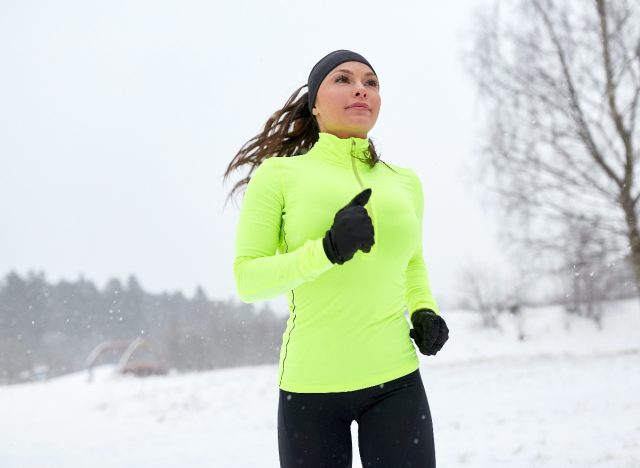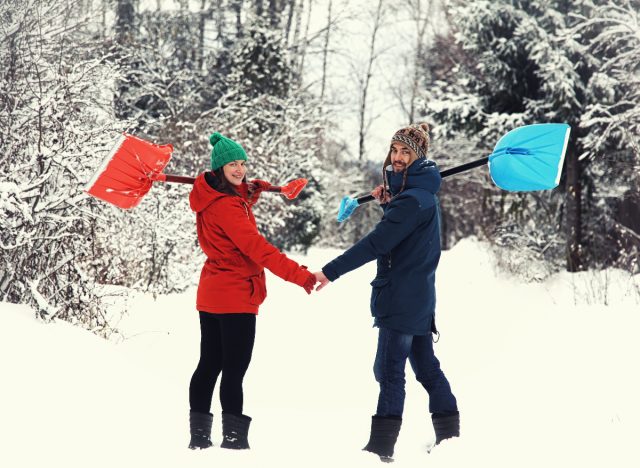How Shoveling Snow Affects Your Body May Be Cause For Concern

The change of seasons brings with it the hope of early spring and planting flowers, a summer filled with beautiful beach days and endless rays, and fire pit evenings enjoyed throughout a crisp and undeniably colorful fall. And, of course, let's not forget the winter. There's something so magical and peaceful about a snowfall—your entire community is absolutely covered in a fresh blanket of snow.
When we are young, this time of year means festive holidays, snow days, sledding, ice skating, skiing, and mugs filled to the brim with hot cocoa and marshmallows. As we grow up and become homeowners, this season translates to high heating bills, shoveling walkways, cleaning snow off of cars, a nasty commute to work, and using a snowblower on the driveway. Ah, the love-hate relationship we have with this very cold, yet beautiful time of year.
Beware, because in addition to the bittersweet feelings you already have about winter, there's a very serious potential health hazard that should be on your radar when you head outside. Read on to learn more about how shoveling snow can affect your body, and next, check out The 6 Best Exercises for Strong and Toned Arms in 2022, Trainer Says.
Exerting yourself in the cold can wreak havoc on your heart health

According to the American Heart Association, exerting yourself in the cold air can be a recipe for disaster and may put you at risk of suffering a heart attack. A previous study published in the Canadian Medical Association Journal (CMAJ) analyzed the number of people admitted to the hospital and the number of people who passed away from heart attacks the day following a snowfall in Canada. The data was compiled from 1981 to 2014. The team's findings conclude that over 128,000 people were admitted to a hospital and over 68,000 people died from a heart attack.
It is wise to refrain from over-exerting yourself. Snow can be pretty heavy to shovel, and the mere act of walking in wet, heavy snow can be taxing on your heart health.
There are important tips to keep in mind when you're outside shoveling snow

The American Heart Association published some suggestions to keep in mind if you are out shoveling snow. Take breaks to rest, and be mindful of how you are feeling. Know the signs of a heart attack (which include discomfort or pain in the chest; shortness of breath; feeling lightheaded, weak, or faint; discomfort or pain in the back, neck, or jaw; and discomfort or pain in one or both of your arms or shoulders, according to the Centers for Disease Control and Prevention). And when in doubt, call 9-1-1. The American Heart Association stresses to wait no longer than five minutes to do so if you think you're having a heart attack.
To best prepare for an upcoming snowfall, it's always a good idea to chat with your doctor. This is especially important if you already have a health condition or aren't physically fit.
In addition, do not consume alcohol prior to shoveling, or even right after. Don't shovel on a full stomach, which can strain your heart. Be sure to wear lots of comfy layers of clothes to keep warm and avoid hypothermia. A hat is a really important item of clothing to wear in colder temps.
Related: The Underrated Way You're Putting Your Heart Health at Risk, Science Says
When in doubt…

Of course, to play things safe, it's always a great idea to schedule a professional to come and clean your driveway. Then, you can take time to read a good book, do a puzzle, practice some self-care in the bubble bath, or simply get super cozy on the couch and binge-watch a few snow day movies. (Hint: This last idea is our favorite!)
For more…

For more Mind + Body news, be sure to check out The Best Foods That Can Help Lower Your Risk of Heart Disease and 30 Ways to Strengthen Your Heart.









